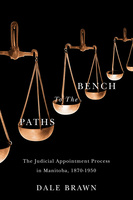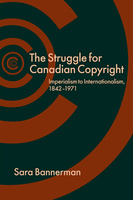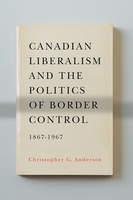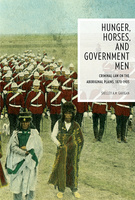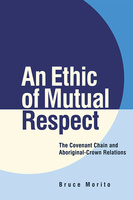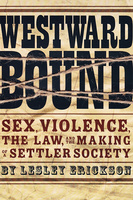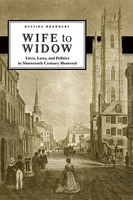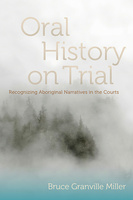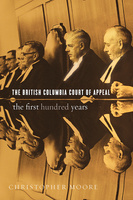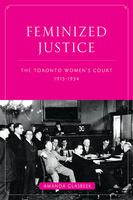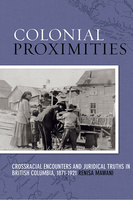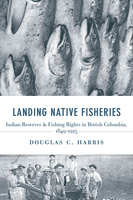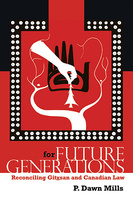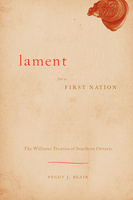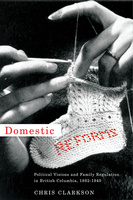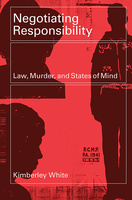Paths to the Bench
The Judicial Appointment Process in Manitoba, 1870-1950
A close study of the judges appointed in early 20th-century Manitoba, revealing Canada’s highly political judicial appointment process.
The Struggle for Canadian Copyright
Imperialism to Internationalism, 1842-1971
The conflicts at the heart of international copyright are explored through the history of Canadian nation-building.
Canadian Liberalism and the Politics of Border Control, 1867-1967
This book chronicles the first century of Canadian border control, revealing how policies have been influenced by changing perceptions of the rights of non-citizens.
Hunger, Horses, and Government Men
Criminal Law on the Aboriginal Plains, 1870-1905
Tells the complex story of the relationship between Plains Indians and Canadian criminal law as it took root in their land.
An Ethic of Mutual Respect
The Covenant Chain and Aboriginal-Crown Relations
This book holds up the Covenant Chain, the historical treaty relationship between the British Crown and indigenous people in North America, as a model for building an ethic of mutual respect to guide modern treaty disputes and land claims.
City of Order
Crime and Society in Halifax, 1918-35
A groundbreaking exploration of the causes and consequences of Halifax’s tough-on-crime measures in the interwar era.
Westward Bound
Sex, Violence, the Law, and the Making of a Settler Society
Through the study of hundreds of criminal cases, Westward Bound explores how encounters between the courts and ordinary people on the Canadian Prairies contributed to the construction of race, class, and gender hierarchies in a settler society.
Wife to Widow
Lives, Laws, and Politics in Nineteenth-Century Montreal
The diversity of women’s lives as wives then as widows negotiating the law, patriarchy, family relationships, and the economy in 19th-century Montreal come alive in this first major study of widows in Canada.
Oral History on Trial
Recognizing Aboriginal Narratives in the Courts
This compelling analysis of Aboriginal, legal, and anthropological concepts of fact and evidence argues for the inclusion of Aboriginal oral histories in Canadian courts, and pushes for a reconsideration of the Crown's approach to oral history.
The Practice of Execution in Canada
The first comprehensive examination of execution as a social institution in Canada.
The British Columbia Court of Appeal
The First Hundred Years
An authoritative history of British Columbia’s highest court.
The Canadian War on Queers
National Security as Sexual Regulation
The Canadian War on Queers shows how the Canadian state used the ideology of national security to wage war on gays and lesbians.
Feminized Justice
The Toronto Women’s Court, 1913-34
Drawing on case files and newspapers accounts of women’s confrontations with the law in the Toronto Women’s Police Court, Feminized Justice offers a multifaceted portrait of women, crime, and courts in early twentieth-century Toronto.
Colonial Proximities
Crossracial Encounters and Juridical Truths in British Columbia, 1871-1921
Colonial Proximities traces the encounters between aboriginal peoples, mixed-race populations, Chinese migrants, and Europeans in late-nineteenth- and early-twentieth-century British Columbia.
Landing Native Fisheries
Indian Reserves and Fishing Rights in British Columbia, 1849-1925
For Future Generations
Reconciling Gitxsan and Canadian Law
Dawn Mills passionately shows how reconciliation can be achieved between Canada’s First Nations and the various levels of government.
Lament for a First Nation
The Williams Treaties of Southern Ontario
An important analysis of how the 1994 Howard decision on the Williams Treaties was based on erroneous cultural assumptions that favoured public over special rights.
Domestic Reforms
Political Visions and Family Regulation in British Columbia, 1862-1940
Negotiating Responsibility
Law, Murder, and States of Mind
Kimberly White provides an essential point of reference from which to evaluate current criminal law practices and law reform initiatives in Canada.

